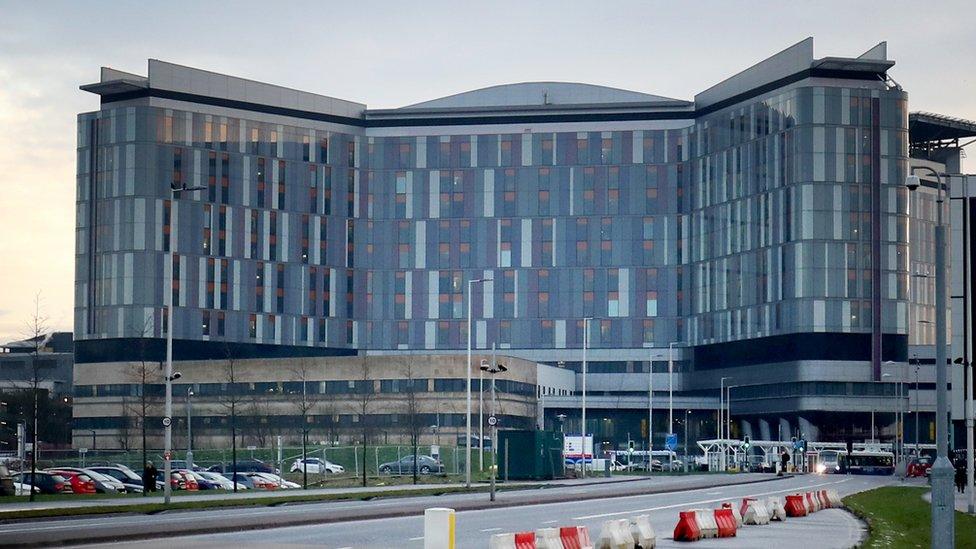Hospitals inquiry: Mum told her son 'safer at home'
- Published
Denise Gallagher said she watched her son suffer in the place he should have been safe
A doctor told a mum her son would be safer at home getting cancer treatment than in hospital, an inquiry has heard.
Denise Gallagher's son was eight years old when he was treated at two flagship hospitals in Glasgow.
The Scottish Hospitals Inquiry heard that Mrs Gallagher was told her son was at less risk of infection at home at one point during his treatment.
Mrs Gallagher also said her son wanted the inquiry to know "it is not the doctors and nurses fault".
The inquiry is investigating the construction of the Queen Elizabeth University Hospital (QEUH) and Royal Hospital for Children (RHC) in Glasgow, and the Royal Hospital for Children and Young People in Edinburgh.
Mrs Gallagher told the inquiry her son was treated at the RHC and QEUH in Glasgow between May 2018 and March 2020.
His treatment with medicines, which included Posaconazole, was discussed at a discharge meeting with a doctor in ward 2A in the children's cancer unit at the RHC.
Mrs Gallagher told the inquiry: "At the start we were told he needed to have antibiotic cover for infection, that was the general gist of it, maybe hospital-acquired or just in general skin infections, anything like that.
"The discussion about the Posaconazole was when he was getting discharged after his first cycle of chemotherapy, (the female doctor) was going through his kardex (medical file).
"She said one medicine he wouldn't get because it's intravenous only, but he would not need the Posaconazole because he is not here, he is safer at home."
She added: "She said he is not here and he is going home, he is safer."
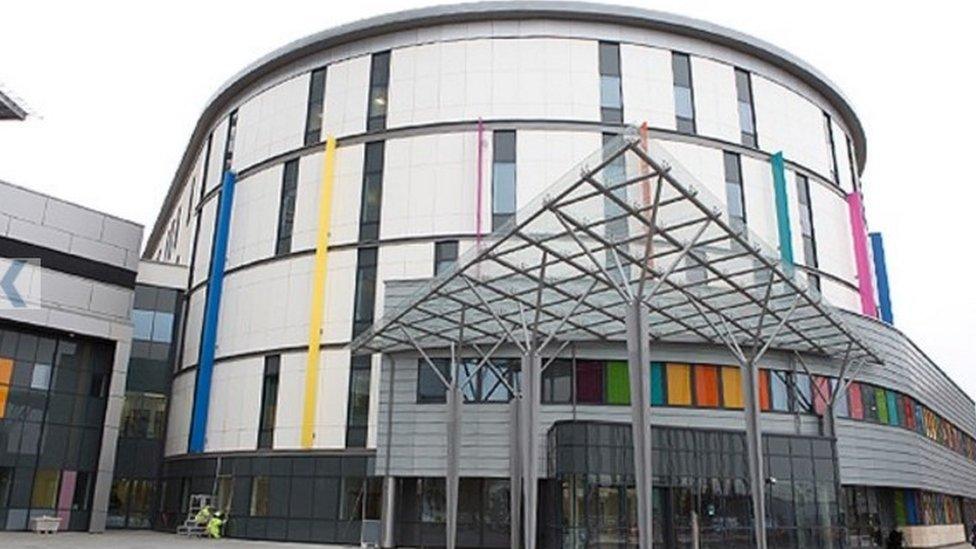
The Royal Hospital for Children in Glasgow is one of the facilities being looked at in the inquiry
Mrs Gallagher's son was due to have a bone marrow transplant in September 2018, after a suitable donor was found, however, it was delayed after he developed an infection which may have been linked to the hospital environment.
The boy complained of a sore stomach during his second cycle of chemotherapy and it was feared he might have appendicitis.
He underwent surgery to remove his appendix, however, the appendix did not appear to be infected and his parents were told he had an infection referred to as "steno" [short for Stenotrophomonas].
Apology
Mrs Gallagher, a nurse, said she was told about the possible source of the infection in early September 2018 at a meeting with Teresa Inkster from the hospital's infection control team and other staff.
She said: "I had asked about the steno infection and Teresa Inkster immediately apologised and said she apologises for my son having the infection and it was likely from the hospital."
Mrs Gallagher's son finally had his transplant in November 2018, after undergoing surgery three times, first to have his appendix removed, then to have his line removed and, finally, to have a new line fitted.
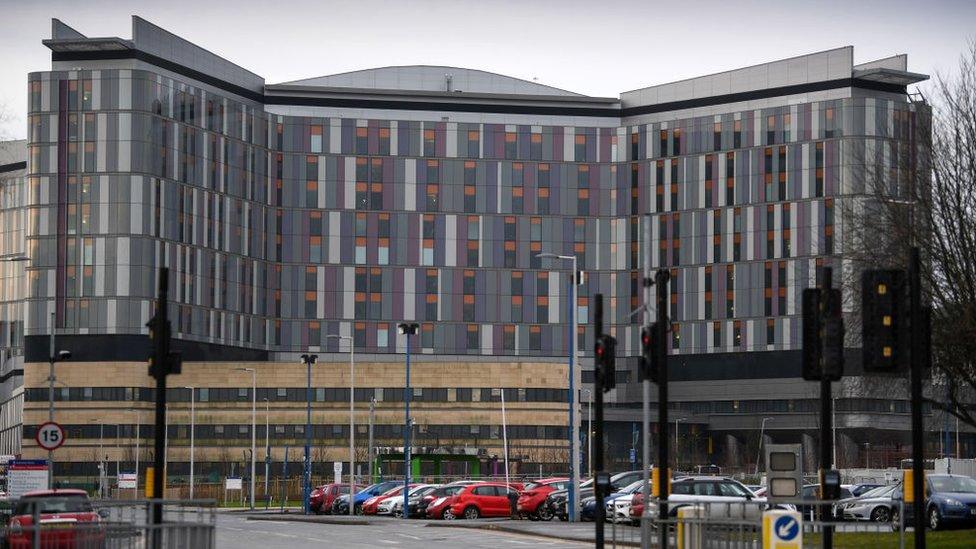
The Queen Elizabeth University Hospital in Glasgow is Scotland's biggest hospital
Alastair Duncan QC, lead counsel to the inquiry, asked: "How do you feel that your son went through surgery three times because of an infection that may be linked to the hospital?"
She said: "Angry. He should have been there in a place of safety, they were supposed to look after him. I feel bad we had to put him through that."
The inquiry also heard Mrs Gallagher had hygiene concerns about pigeons around the hospital site as she saw pigeon excrement on the ground and walkways outside, and dead pigeons on the roof between the children's hospital and the QEUH theatre block.
'Not their fault'
Mrs Gallagher said that her son was aware of the inquiry and was keen to have his say but was aware he was too young.
She said her son said: "Mum please let them know it is not the doctors' and nurses' fault. It is the hospital that is sick, not them - it is not their fault."
Earlier this year, an independent review found the deaths of two children at the QEUH campus were at least in part the result of infections linked to the hospital environment.
NHS Greater Glasgow and Clyde will give evidence at a later date.
The inquiry in Edinburgh, chaired by Lord Brodie, continues.
- Published29 September 2021
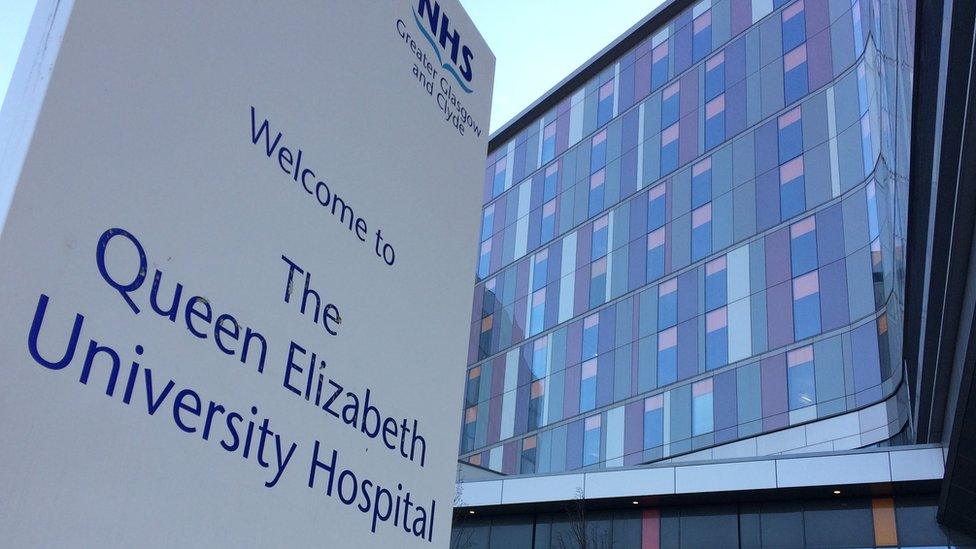
- Published27 September 2021
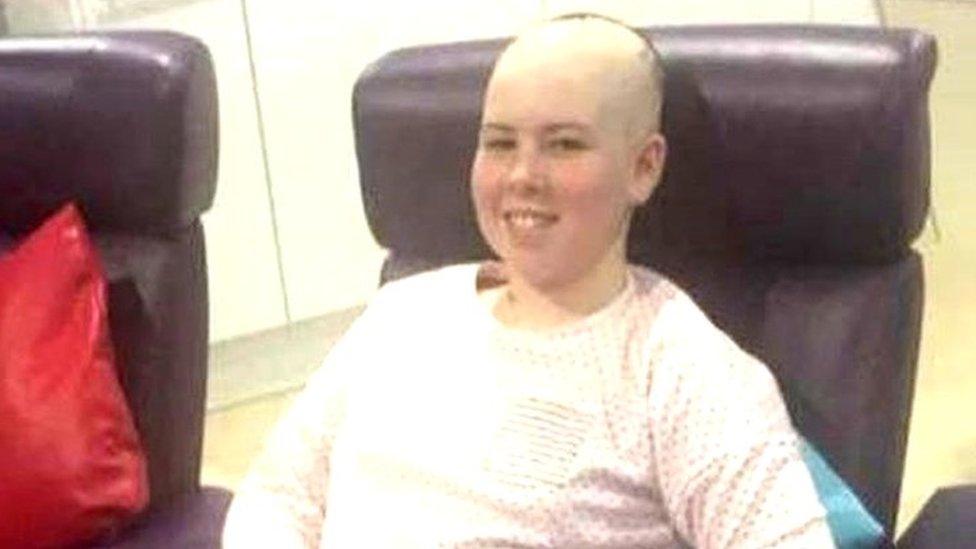
- Published24 September 2021
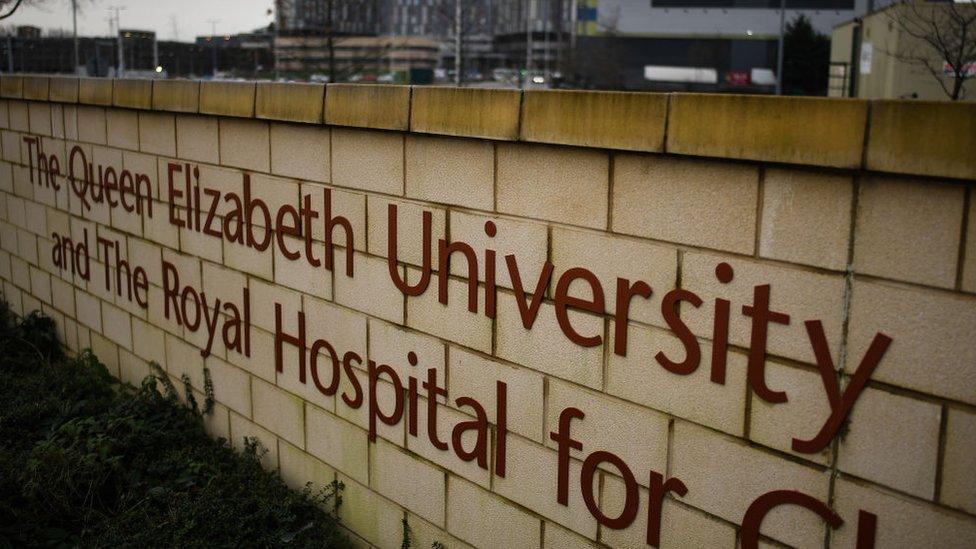
- Published23 September 2021

- Published9 May 2022
